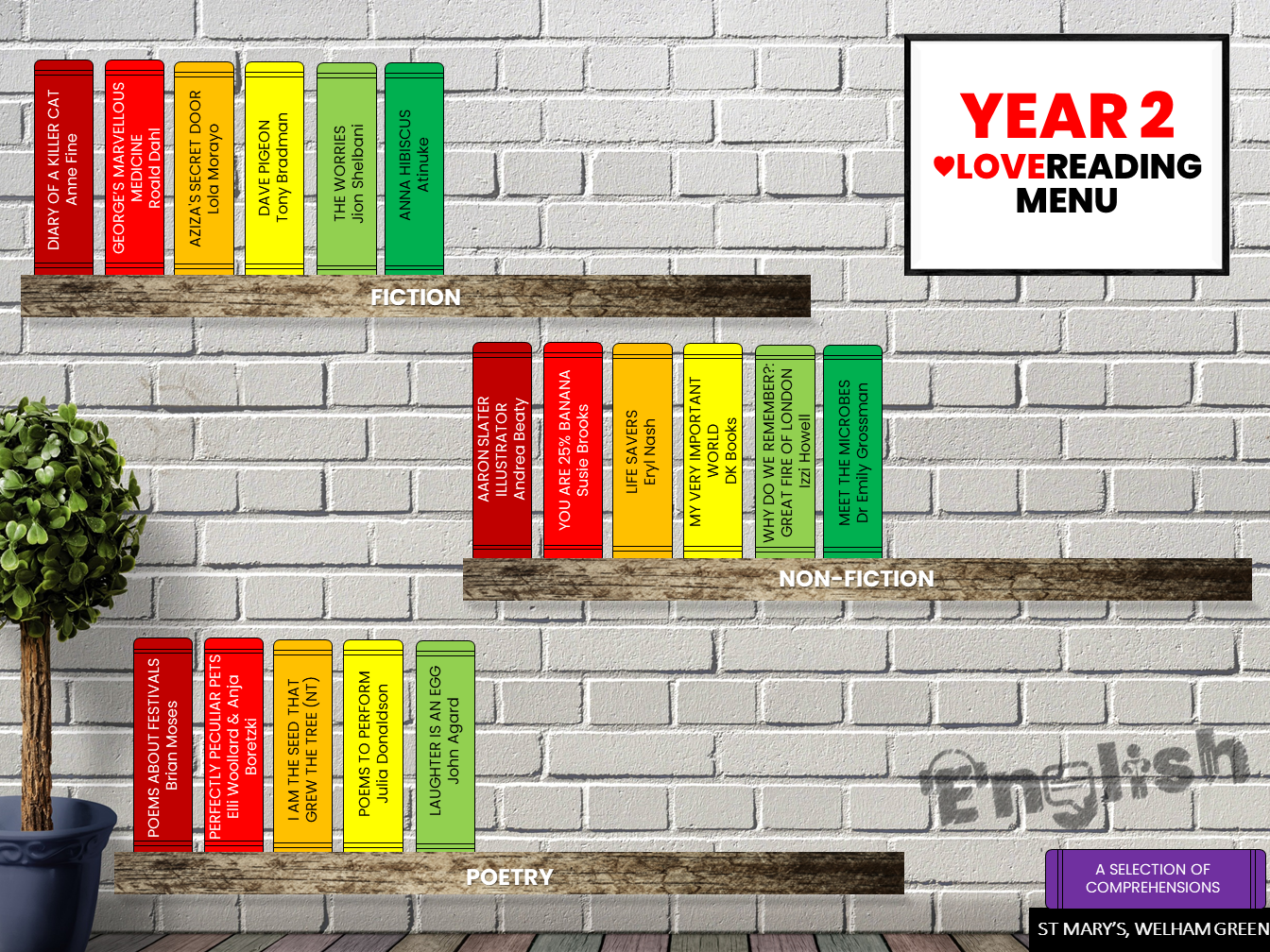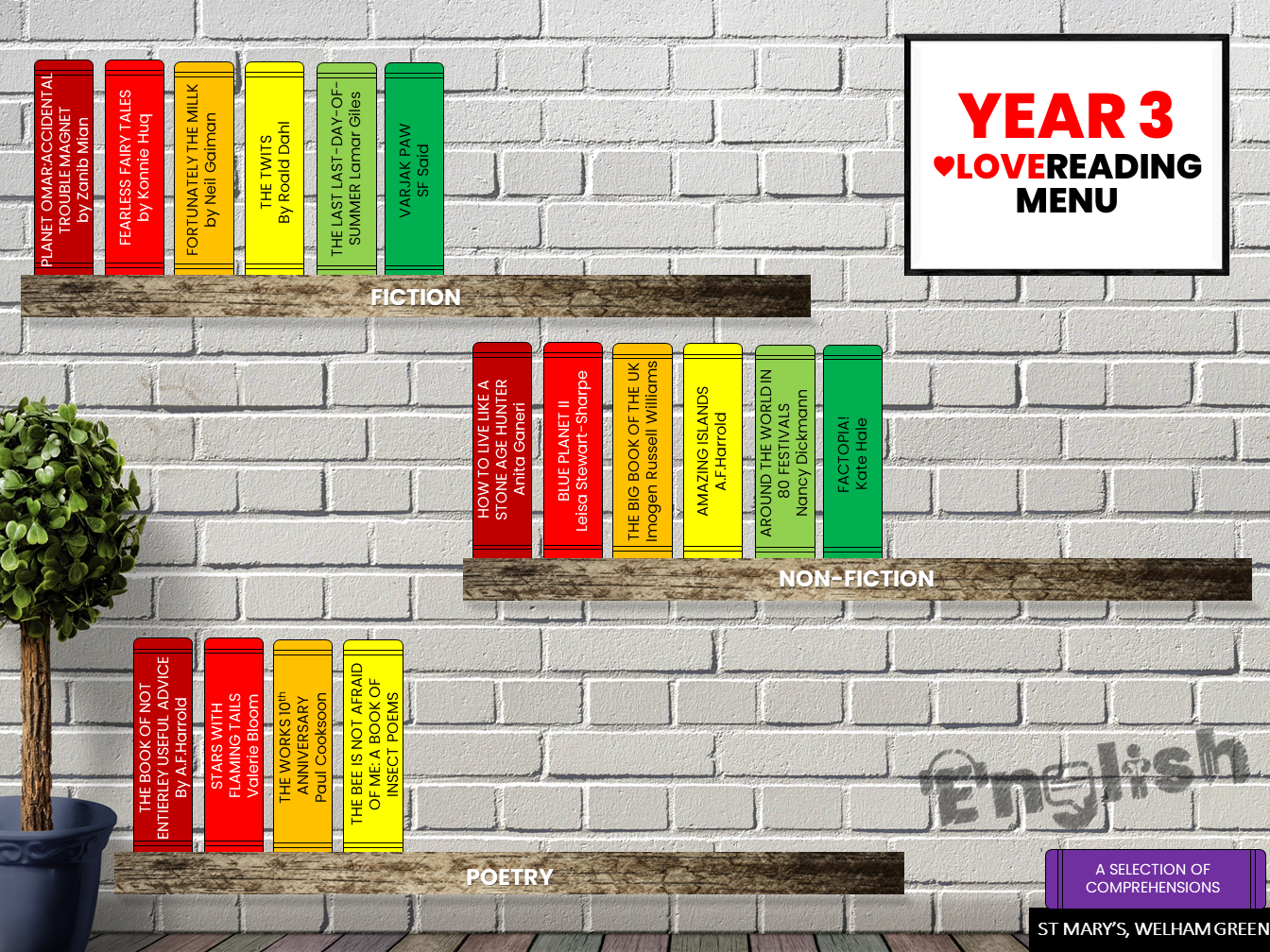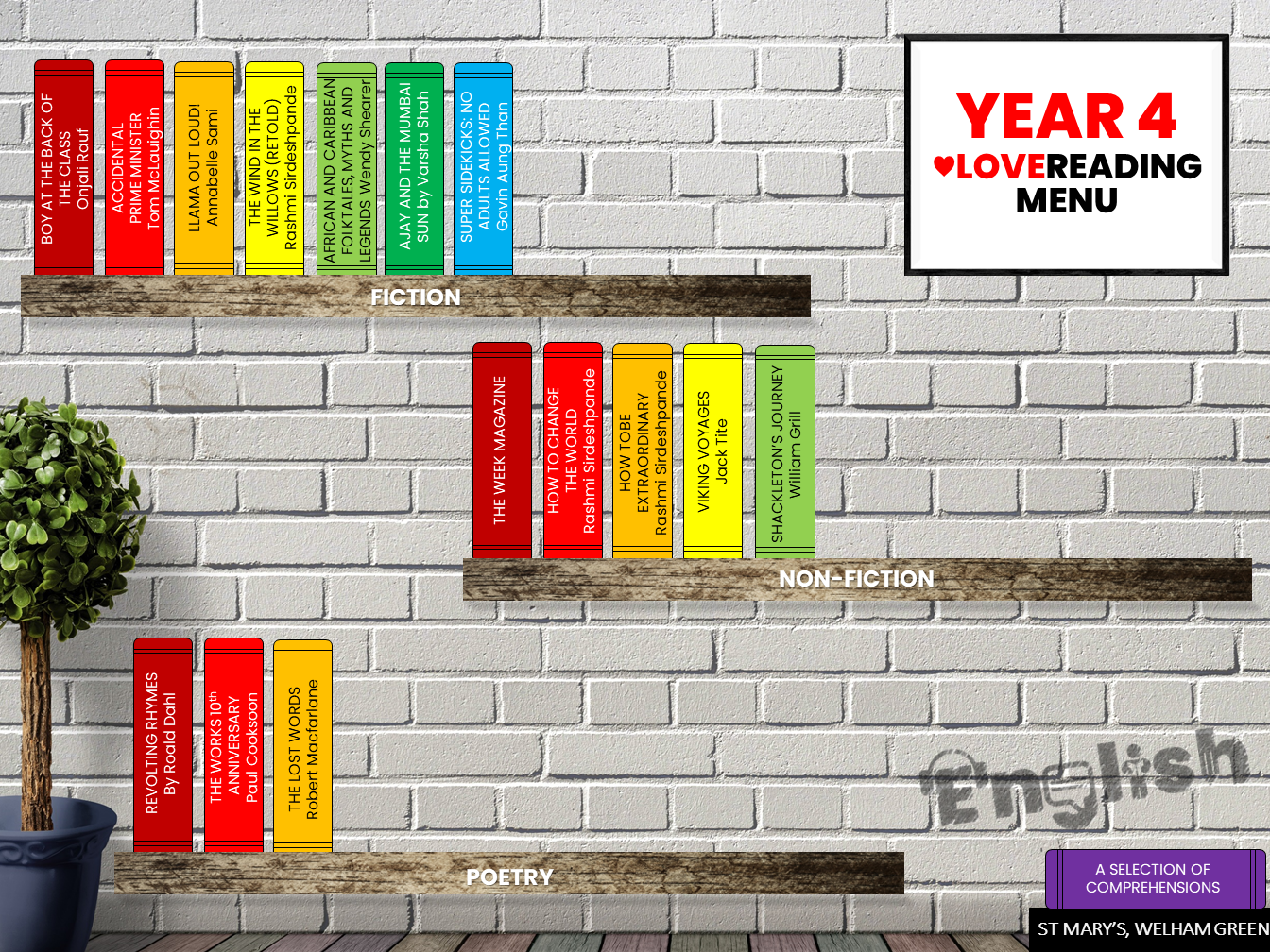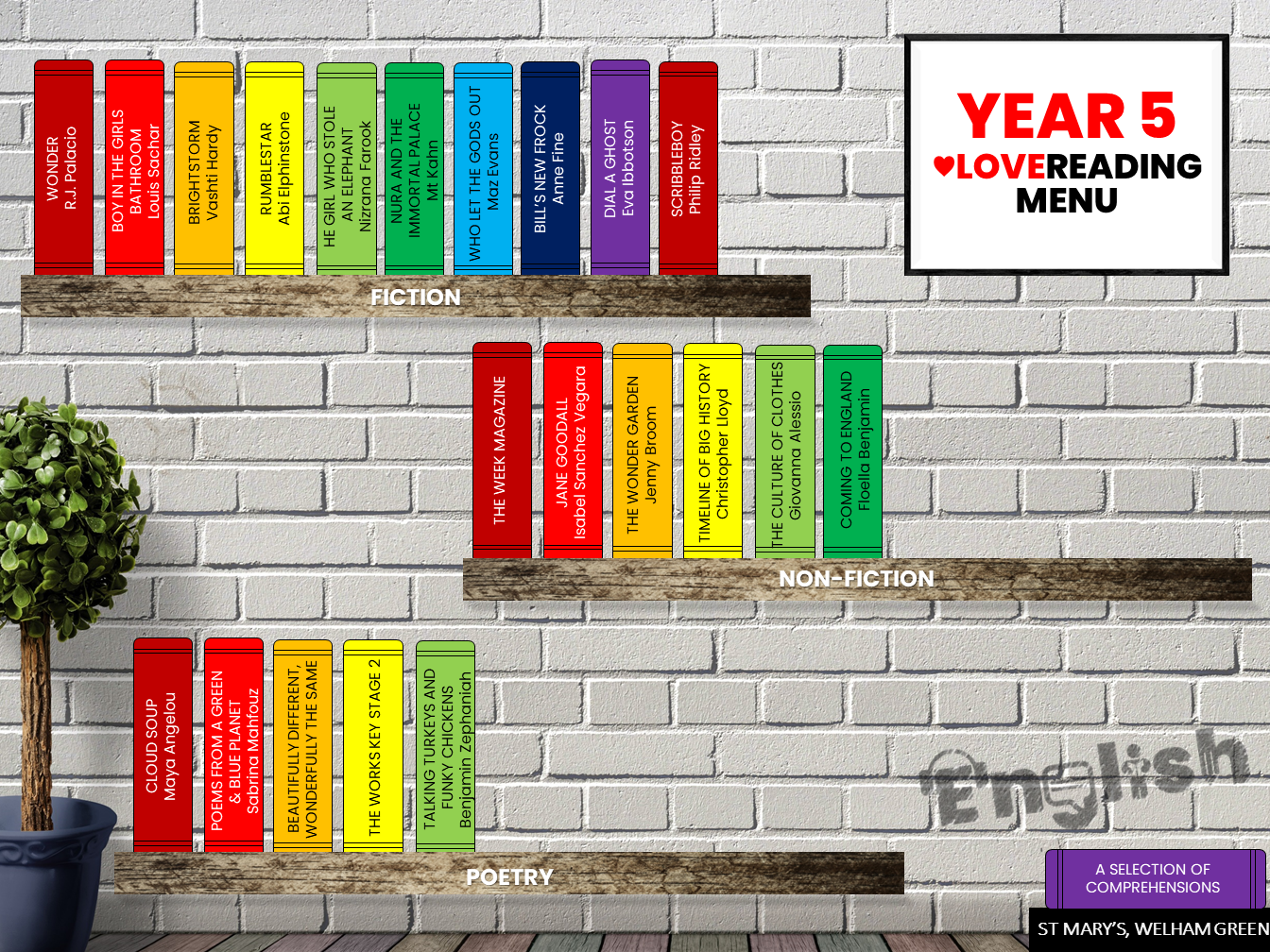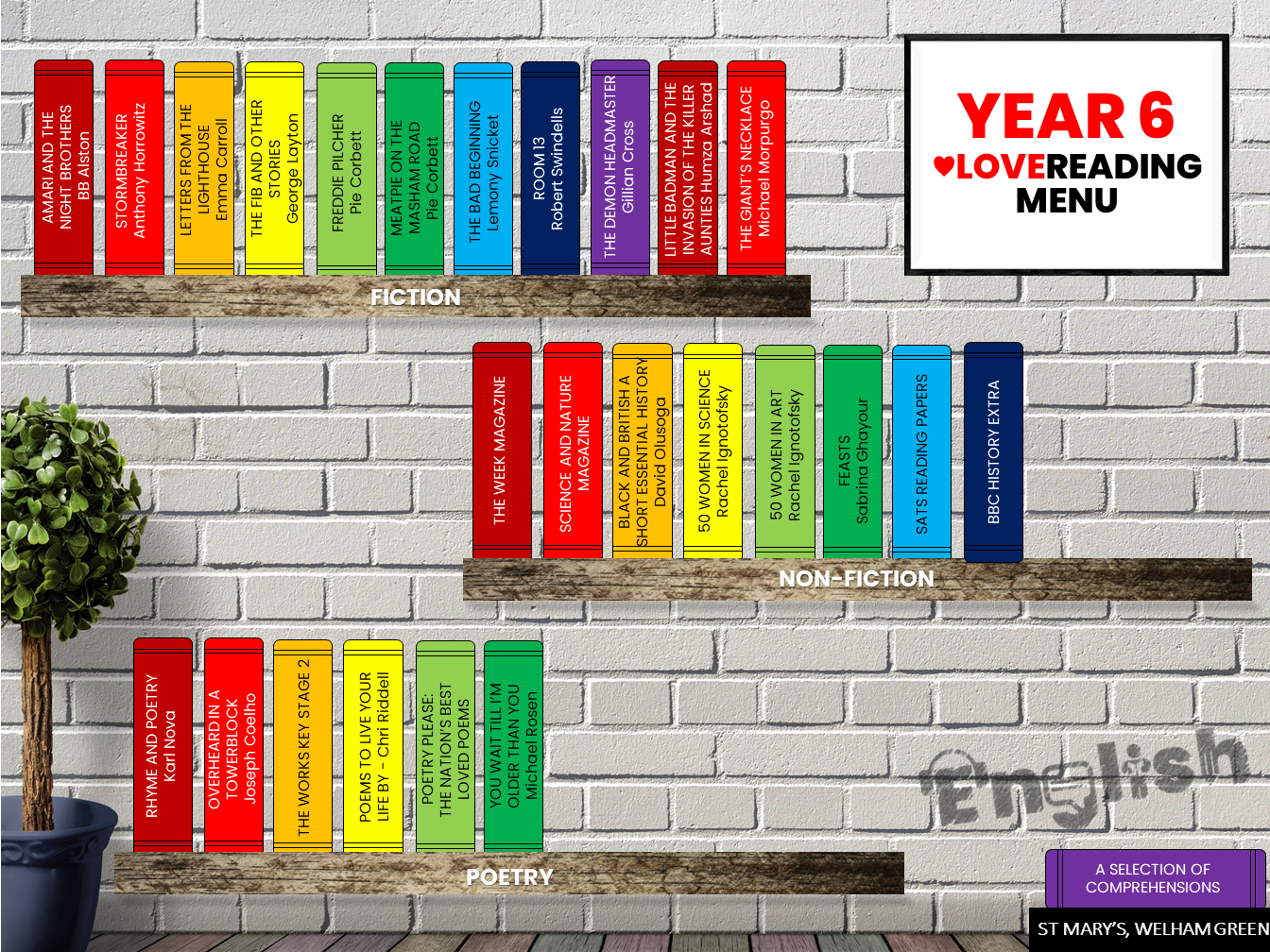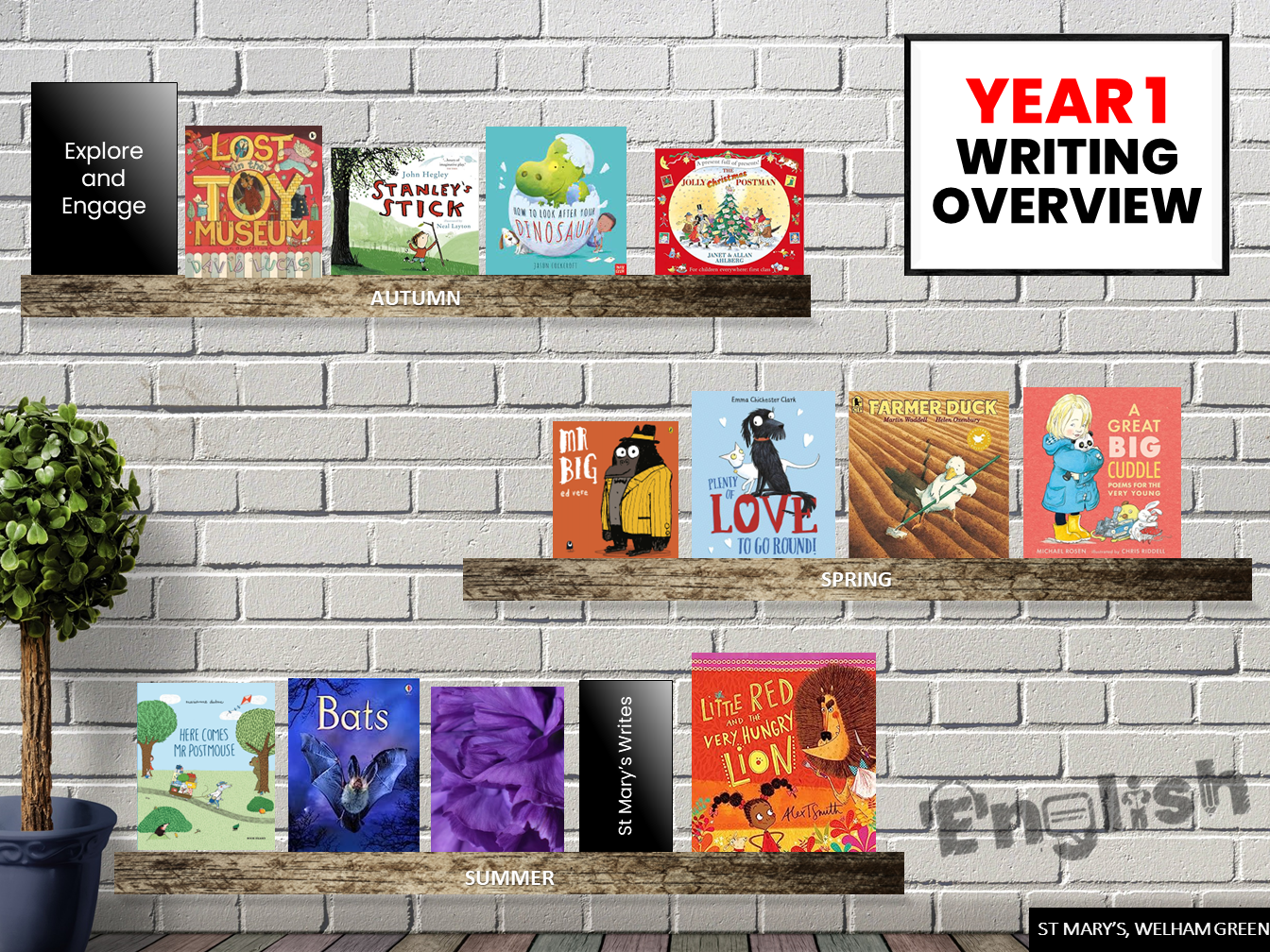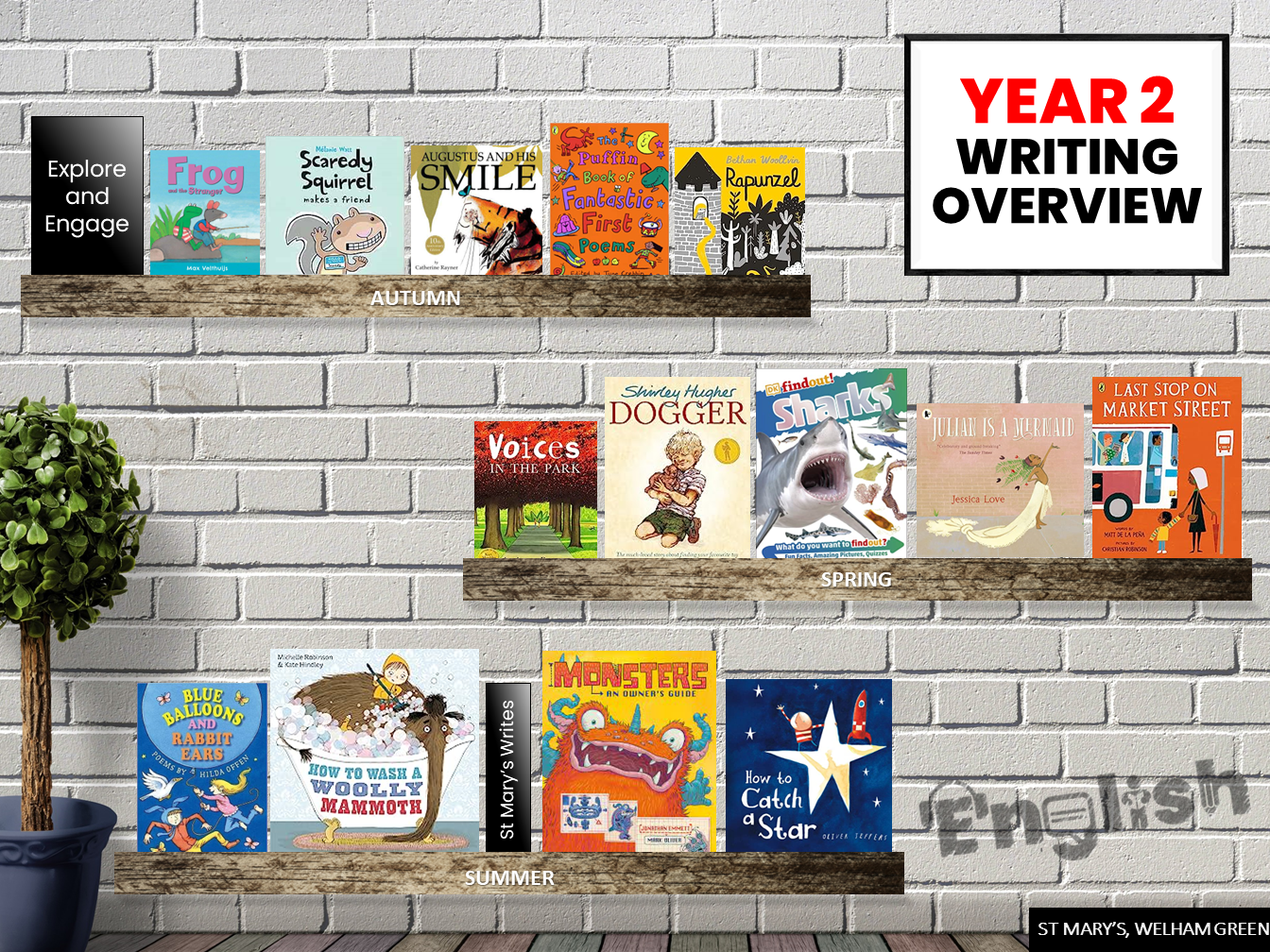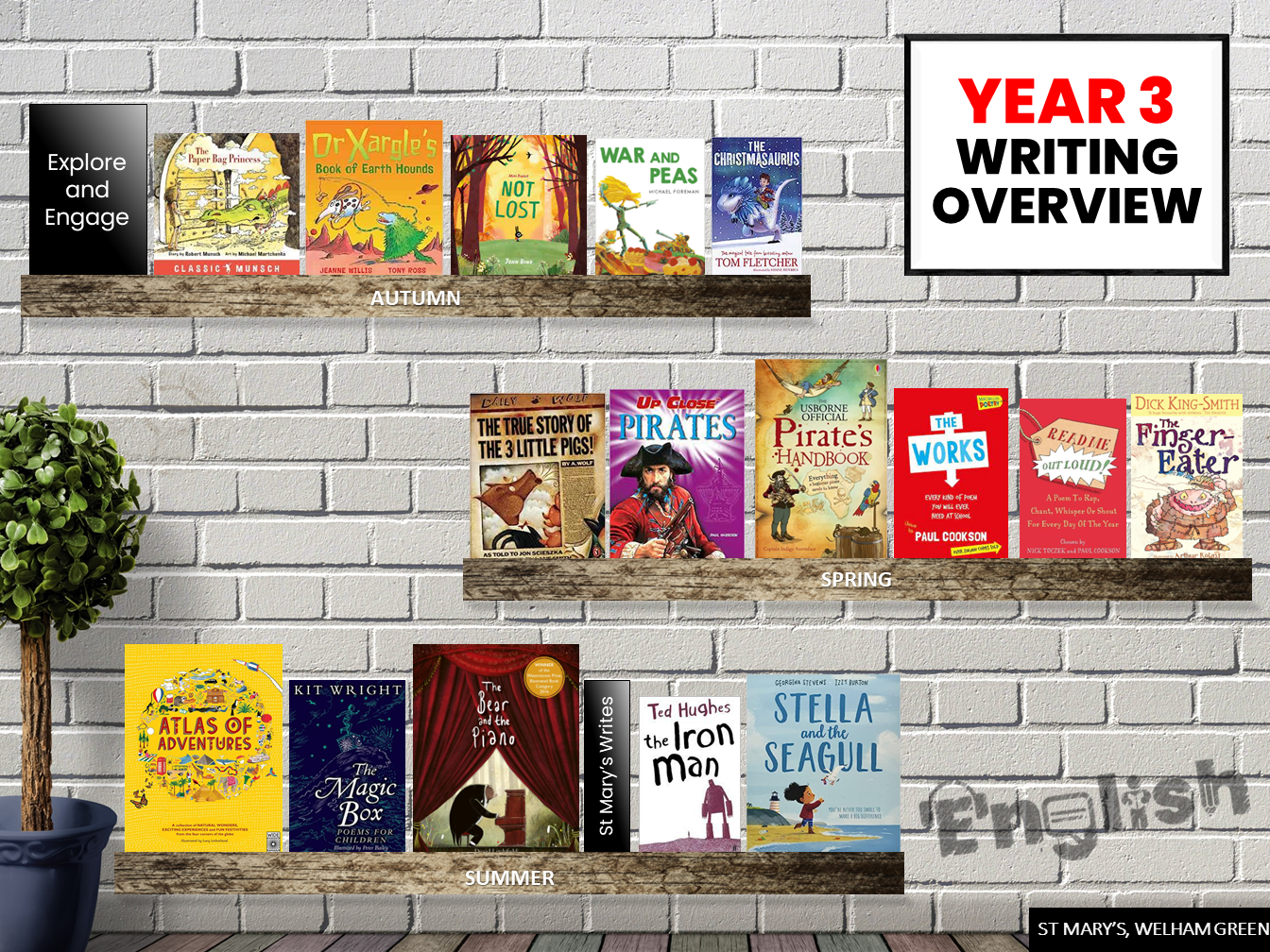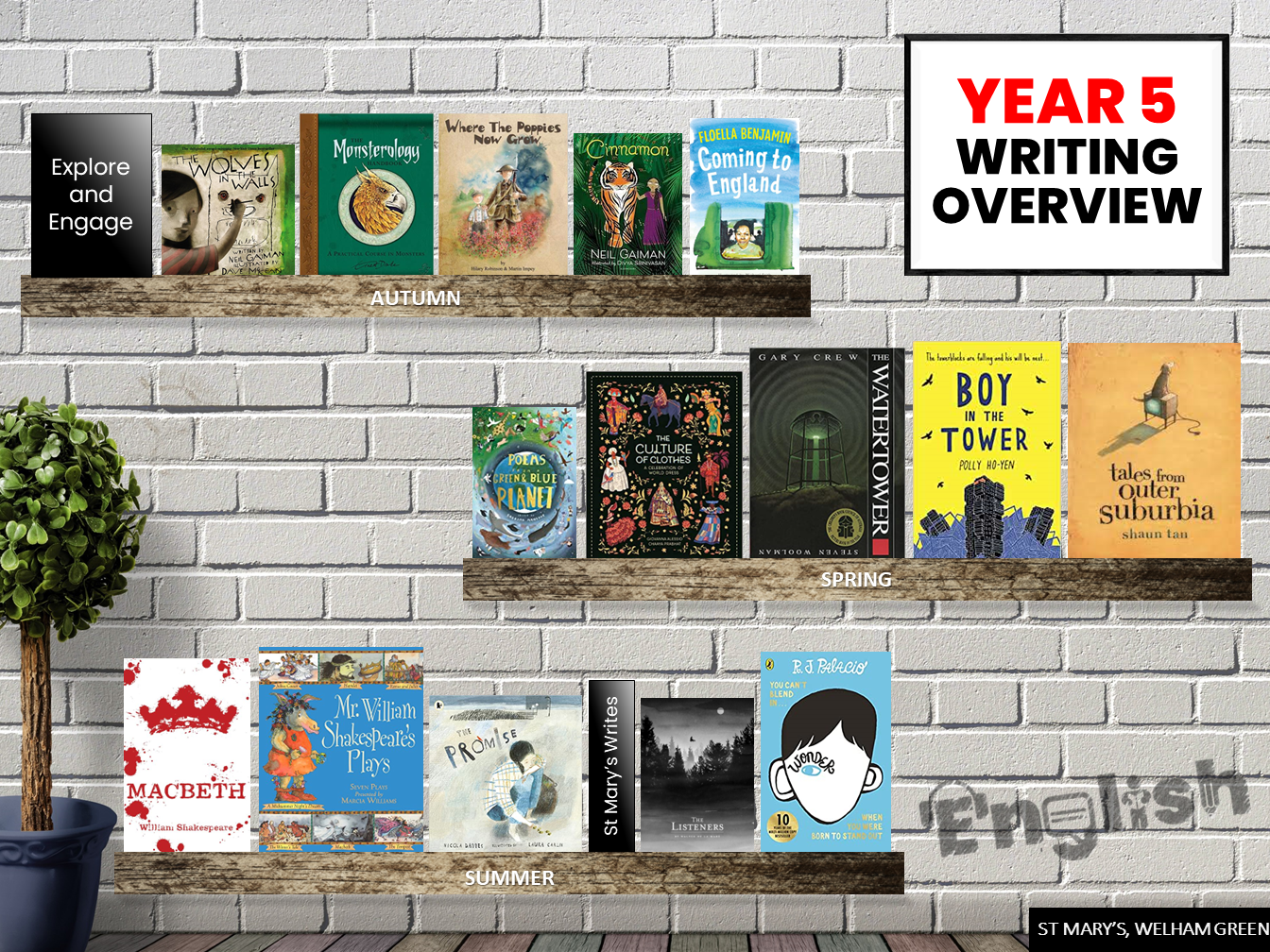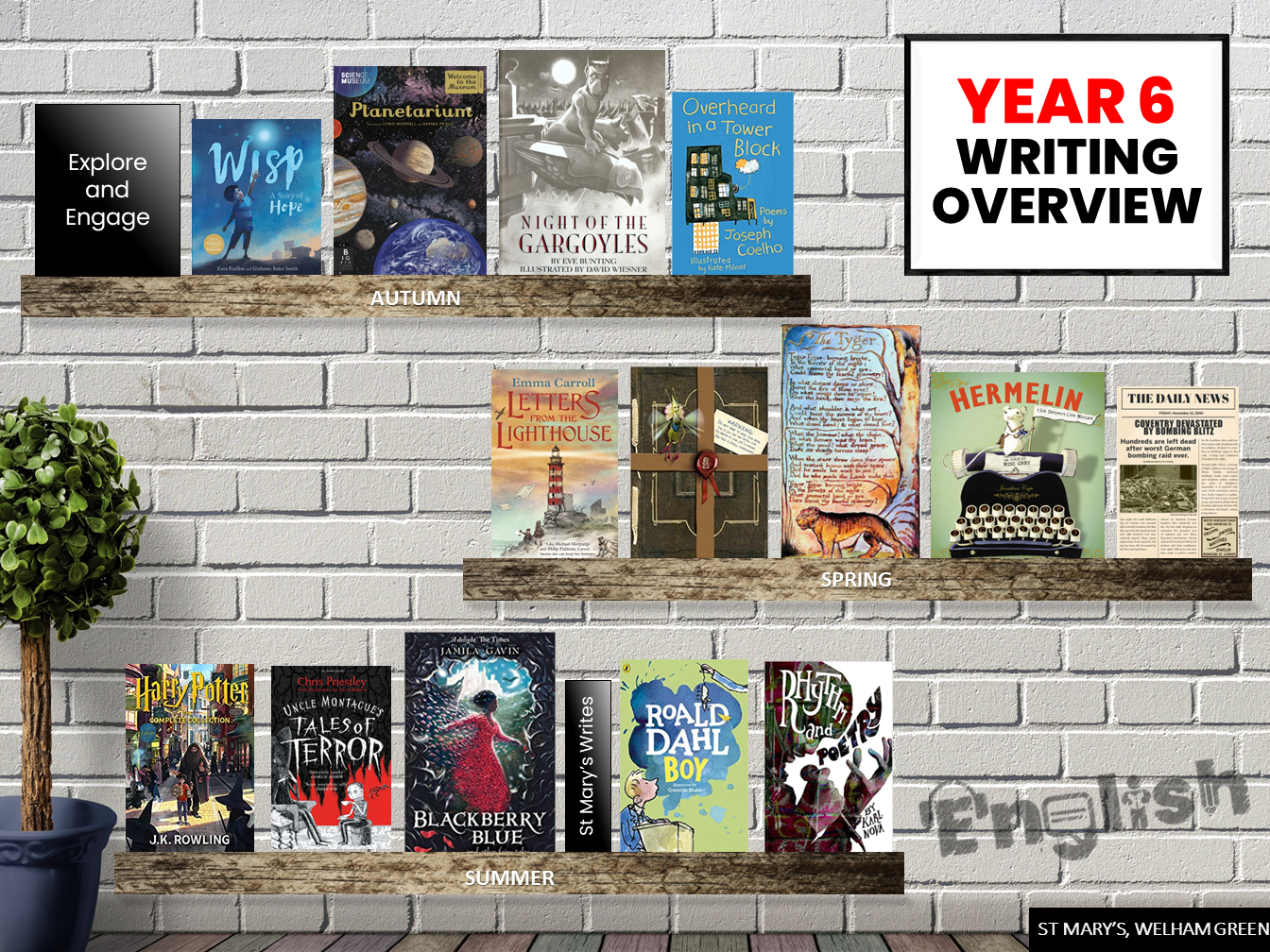English
“An inspiring, creative book-based approach, where children flourish in listening, speaking, reading and writing”
Reading
In school, we teach the skills of reading through our ♥LoveReading lessons so that all children can access an exciting and dynamic range of texts. These sessions continue to build on the skills of decoding (with children bringing a solid base of understanding from our Read Write Inc. phonics and reading scheme) and use VIPERS to explore comprehension of texts.
♥LoveReading sessions enable pupils to engage with diverse texts, supported by an adult, enjoying the language used and reading deeper. On this journey through books, discovering great authors and characters along the way, children will develop their love of literature.
Generally, we would expect to see the Teacher-led whole class reading approach in ♥LoveReading sessions, but other approaches such as choral, paired, round-robin, repeated and individual may be used to complement.
Writing
We use a carefully curated, book-based approach in English lessons because it creates high levels of engagement, broadens children’s exposure to beautiful and important literature, and opens children up to worlds and cultures that are a catalyst for great talk.
In exploring high-quality texts closely, our children are supported in their knowledge and understanding of grammar. The opportunity to emulate the style of authors and develop literary language is taken advantage of at every step. There’s a rich variety of children’s literature on offer in our curriculum, including laureates, award winners, classic authors and texts from around the world. We know that in making this our children’s literary diet, it won’t be long before this richness becomes the norm in their own writing!
Books also give us the perfect context for purposeful writing to take place. They provide real reasons to write and excellent published outcomes. With plenty of opportunities to write (in shared, guided, group, paired and individual settings) every child will be supported to flourish in writing.
Many of our English writing units come from HfL Learning PA Plus. Others have been written by staff, advisors and writers using the HfL planning platforms in their creation. We thank all of them for their role in bringing our curriculum together.
SPaG (Spelling, Punctuation and Grammar)
As well as integrating spelling, punctuation and grammar teaching throughout our English units, we also give children opportunities to rehearse SPaG skills using the Vocabulary Ninja Whole School SPaG Starter system. This is an amazing and comprehensive whole-school resource which we use to teach SPaG effectively and consistently.
The SPaG Starter System is built around a daily 10-question SPaG Starter activity that pupils can access each and every day of the school year. The system covers every year group. Each year group’s activities are closely aligned to the National Curriculum’s expectations for grammar, ensuring the pitch and progression of each series of documents.
The resource has teaching and learning theory built-in, with regular opportunities for spaced retrieval. Each resource works with a three or four-week cycle. Weeks 1, 2 and 3 have specific grammatical objectives to focus on. Week 4 overviews the three previous weeks of learning, providing a mini-assessment of pupils’ understanding.
We know that learning to spell is an important part of a child's education and can have a positive impact on their communication, reading and writing skills.
In the Early Years Foundation Stage and Year 1, our RWI phonics teaching makes strong links between blending for reading, segmenting for spelling and handwriting. We encourage all of our pupils to apply their phonic knowledge when spelling.
From Year 1 upwards, children are taught in daily discrete spelling lessons using the Purple Mash Spelling Scheme. This is a comprehensive programme for Years 1 to 6 which supports our teachers in teaching and assessing the statutory words and foci from the National Curriculum English – Appendix 1: Spelling.
Our focus on teaching spelling embraces the knowledge of spelling conventions, patterns and rules. We also promote the learning of spellings, through the use of multi-sensory strategies, including combining the teaching of spelling and handwriting. Our teaching of spelling includes common exception words, high-frequency words and topic words.

